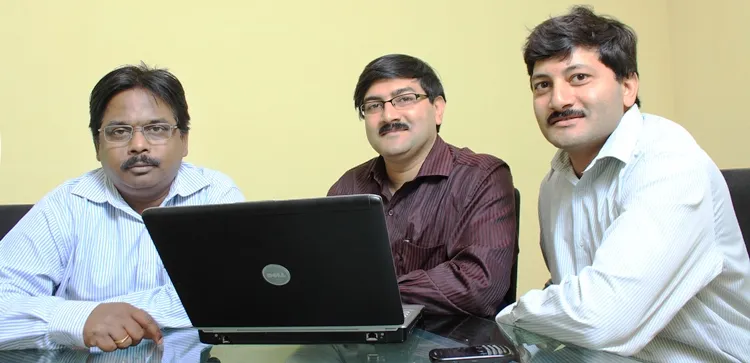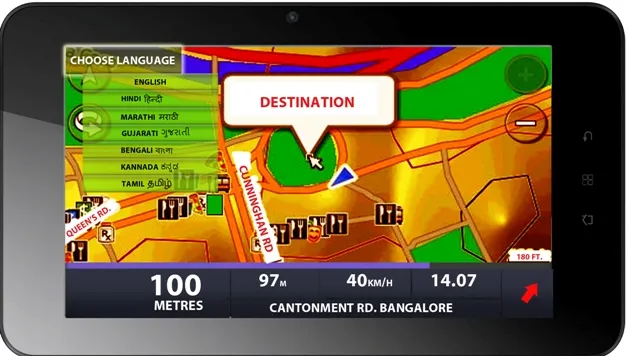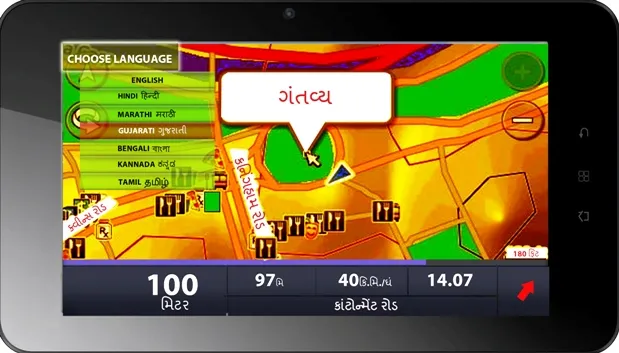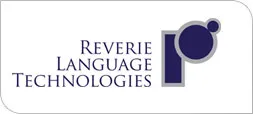How Reverie Technologies is solving the great Indian language challenge
That startups are solving problems which big companies have ignored is well-known, and sometimes the challenges they have take up seem like a very obvious opportunities which should have been solved by the big guns. Bangalore-based Reverie Technologies has taken up one such problem to start up on. Reverie provides regional language capabilities to devices manufacturers – mobile manufacturers, tablets, set top boxes, games and application developers among others. Reverie Technologies were also part of the coveted Tech 30 from TechSparks 2011. TechSparks is the biggest discovery platform for technology startups in India. (This year's edition is just 13 days away). Reverie was awarded for its innovative idea by Qualcomm through the QPrize competition in 2011.
While state governments are taking efforts to increase proliferation of their local language, there are also reports which say English medium schools are overtaking local language schools being built. While administrators are still figuring out a way, the publishing industry has since long effectively tapped the regional market. Even in the latest Indian Readership Survey report, among the Top 10 newspapers in the country, there is only one that is published in English.
Arvind Pani, co-founder and CEO, Reverie Technologies says they had very early realized the challenges that local languages would present to mobile phone growth. “In 2000-01 I was able to anticipate that languages would be a challenge in the mobile phone languages and I told Vivek(co-founder), we should start something in mobile technology. Since then languages have evolved very well and mobile phones have become important,” shares Arvind. However in those years (2000-01), they realized it was very early to work on something like that for mobile phones. Cells were also very expensive and anyone who could afford mobile phone could surely talk in English. But the thought stayed on and in 2009 when mobile phones had become affordable and was getting into the hands of the masses, they decided it was the right time to startup.
Building the team

Arvind was working for Intel managing large enterprise software, while the other two co-founders Vivekananda Pani and S. K. Mohanty were colleagues at CDAC. Both Vivek & Mohanty are language people and between them have core experience in language of about 40 years – which includes language computing, R&D in language tools for complex languages. Indian, South Asian and Preso-Arabic languages are all classified as complex languages – because here characters combine to form words. Arvind explains this very patiently to us. In English, characters are linearly rendered i.e. the sequence in which characters are input, is also how the output is. Therefore if cricket is written as C-R-I-C-K-E-T, then that is also how it is read. However to write the same word in Hindi when you write cricket, the ‘e’ maatra appears first, but during input sequence it is the third character to be input, while the first character input is ‘K’. “That’s why Indian, South Asian languages are called complex script languages. Our co-founders have been working on these for a long time,” says Arvind.
Mohanty is the chief type design architect at Reverie and was the founder of the GIST division at CDAC, which he subsequently headed for 10 years. His biggest contribution there was to ISFOC standardization -- the standard for Indian languages in the digital world. And to his credit, has designed more than 200 digital typefaces for various output devices and in different Indic scripts. Vivek is a language tools and algorithm person, and the Chief Technology Officer at Reverie. He has pioneered several free tools including the first free text transliteration from English to Indian and other global languages. He also architected the India’s first and only TV entertainment platform to support 11 Indian and Perso-Arabic languages on the set top box.
Apart from the core team, the other 12 members comprises of mostly freshers whom the core team has trained and groomed to work with them. Very recently Jonathan Bill, former SVP, Innovation & Business Development, Vodafone India has joined Reverie board as a strategic advisor. He will help them scale Reverie’s language platform for applications and content services both for Indian and international markets.
The Reverie difference
While there are many free language creation tools in the market, Arvind says Reverie is different because they can design something that is aesthetically nice and appealing. “When you write a code, the challenge is how to make the fonts look equally good on a sub-Rs 5,000 phone or a Rs 50,000 smart phone. Our core programs are written in C, C++ and we ensure that our solution is such that it can even work well on a lower end feature phone and have a low memory footprint. The quality of what we can output is because of the rich experience of our core team,” says Arvind about the Reverie difference. All products and solutions created by the startup is targeted mostly for the devices(mobile phones, tablets, set top boxes, games and application developers) but can also be used on the PC. As of date Reverie's language platform already supports 45 languages.
Market approach

Currently Reverie works mostly with B2B businesses like OEM manufactures and app developers. It has partnered with Indian companies like Plustxt and JusChat to provide local language capabilities within their own products. “We have adopted two strategies – to cater to the new devices coming into the market, where we work with the manufacturers, and secondly work with devices that already exist in the market either through App developers or content providers like telecom companies,” explains Arvind.
He says the challenge of regional language experience on cell phones still remains the biggest in the market. “When local languages content was being offer on PC or mobiles, the experience was not as good as English language. Even today if you take Windows OS and browse an English news portal and Hindi portal, the experience for English will be far more superior. Same holds true for anything – sending an SMS, posting to Facebook, making search in local languages – anything you do in English and try to do the same thing in regional languages, the problem increases ten fold and thereby prevents users from seriously using anything in Indian languages,” explains Arvind. This bad experience hinders stickiness to Indian language use and therefore is a problem – which is still not being addressed completely by service providers.
The other challenge they face is dealing with the decision makers at the manufacturers end. “Most decision makers are very proficient in English and they don’t understand the pain that is present in Indian languages, or the problems a non-English person will undergo. There is the perception that English is an aspirational language, and through English we can reach the masses. But that is not true,” asserts Arvind. He also points to the print media, TV media and regional movie dominance in regional language to emphasize his point. “If we can make the access and consumption of local language experience very good for the consumers, they will like to work better in local languages. Ease of use in regional languages is still absent,” explains Arvind.

Reverie is today working with Qualcomm, Vodafone and Samsung for enhancing language capabilities on their devices. On the OEM front, Micromax has already released devices which use Reverie language capabilities, and Arvind says they are also in discussions with Lava and Karbonn for possible partnerships. They are also developing a cloud based language service model, where any app developer could come to their platform and download the language plug in and start publishing apps in local language.Reverie makes money through the license fees that it earns on per unit installation for different devices like -- mobiles, tablets or set top boxes. “We are dependant on the volume of a particular product that a manufacturer installs Reverie in. This feature is a value-add that OEMs want to provide to customers and therefore cost is not passed to the customer,” explains Arvind. Bulk orders would typically be above 250,000 and sometimes there are smaller enterprise orders – made for the sales team or such—where shipment size is between 30,000 – 50,000 devices. In cases of enterprise orders, the price that Reverie can command is higher compared to bulk shipments.
As of date, there would be about 750,000 to a million Reverie enabled devices in the market, which will go upto 10 million devices in the next 12-15 months, says Arvind. These numbers would include everything -- either a device or an app that will come into the market.
Reverie also has plans for the B2C space and wants to build language as a service platform. “The platform could have millions of use cases where languages can be used. We cannot build all such use cases ourselves and therefore will create a platform which will enable the entire industry to create these use cases,” says Arvind.
Money matters

Started by bootstrapping, the Qualcomm QPrize win in 2011 of $100,000 gave them the initial boost. Another investor put in the same amount, which helped Reverie take their product to market and commercialize it. Arvind says they are making some money at this point and are looking to make their first million dollars in revenues by end of 2014.Arvind says, local brands are better to work with as they have a shorter decision making cycle. However in case of multinationals, the decision making process sometime stretches for as long as 9-12 months, since the time of first discussion of the proposal.
If you’ll remember that Akbar-Birbal tale – which is about the challenge a foreign ambassador puts before Emperor Akbar. The foreign ambassador challenges anyone in Akbar’s kingdom to guess his mother-tongue. The said ambassador was proficient in multiple languages and could easily converse in many languages, therefore the task of finding his origins was a tough one. Birbal of course rose to the occasion and cracked the puzzle. But if Reverie manages to grow well and execute their ambitions, no emperor would ever have to face language challenges again, we think.
Look out for the unveiling of more such innovative tech product startups emerging from India at TechSparks 2013, 5th October at Bangalore







